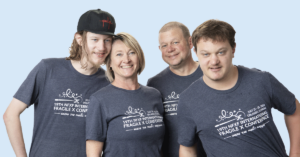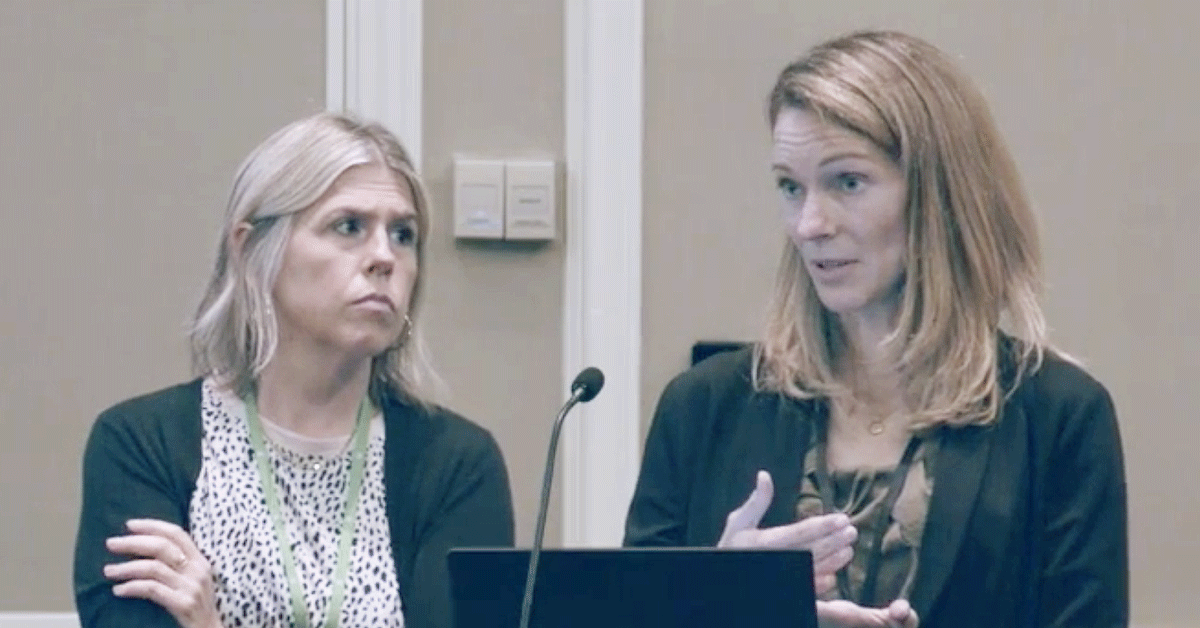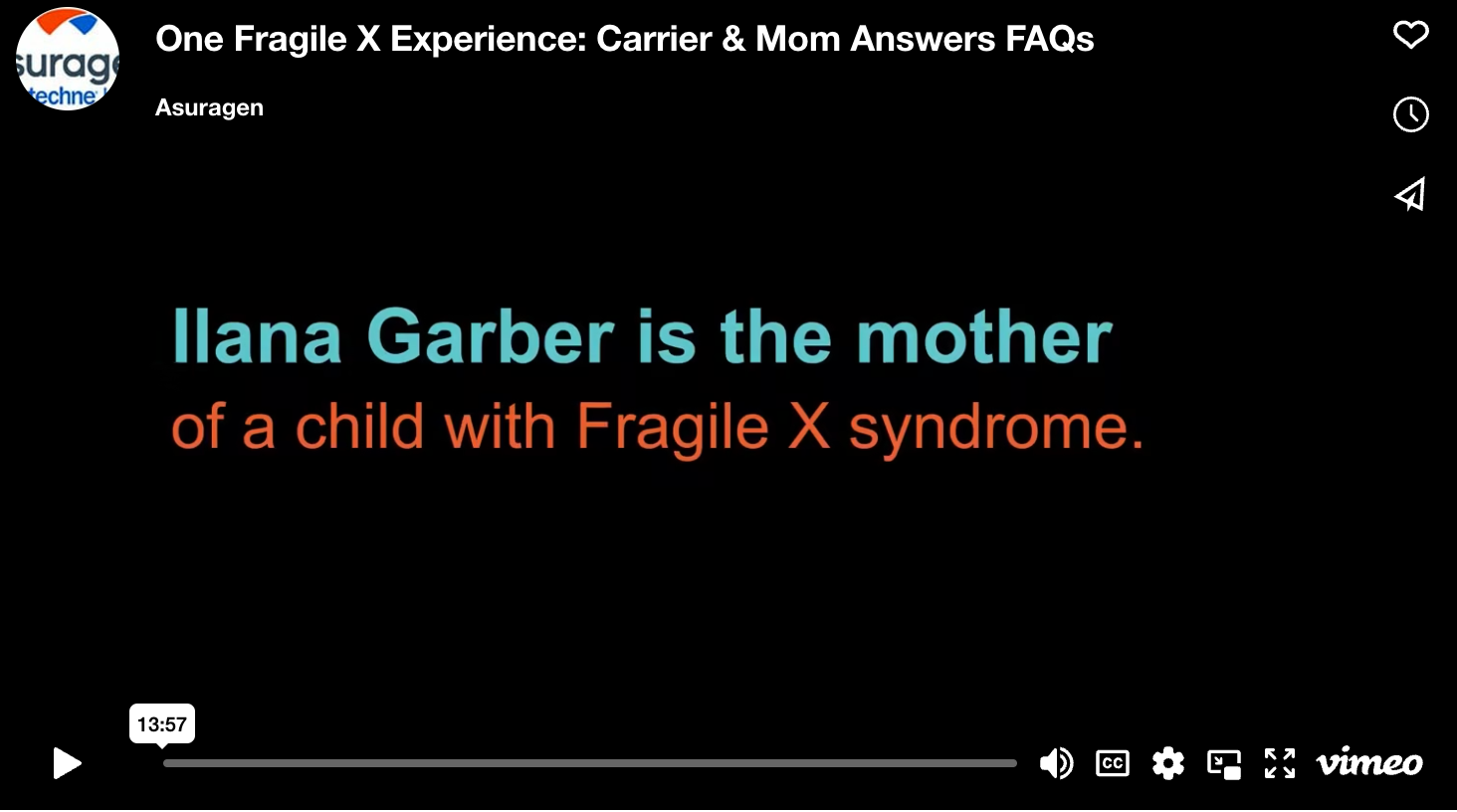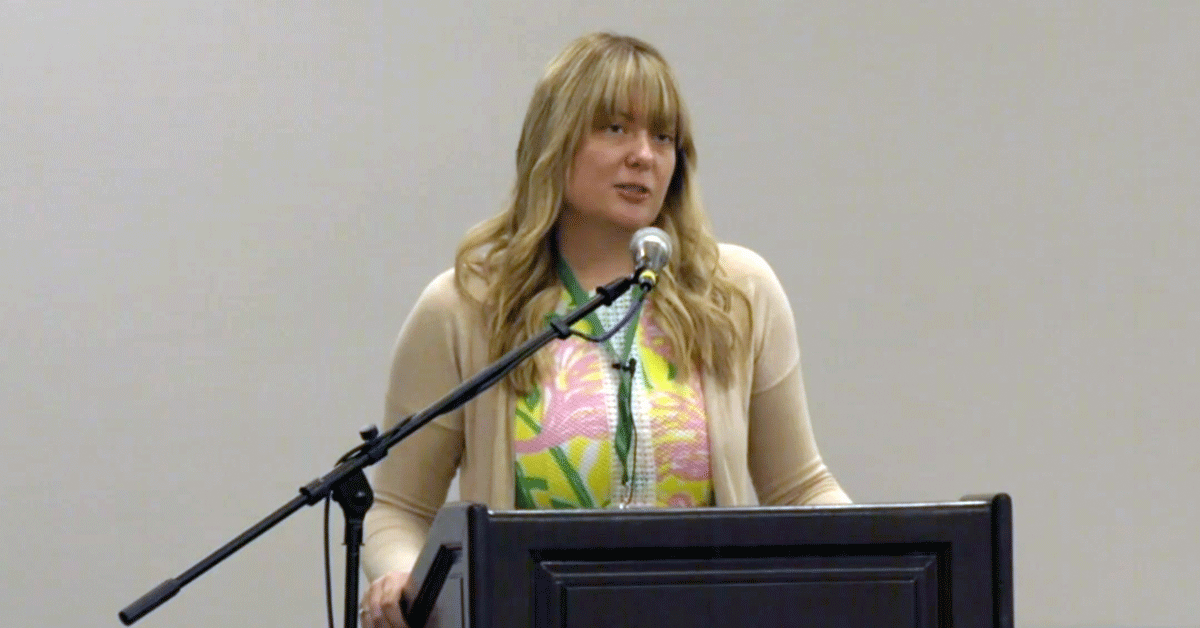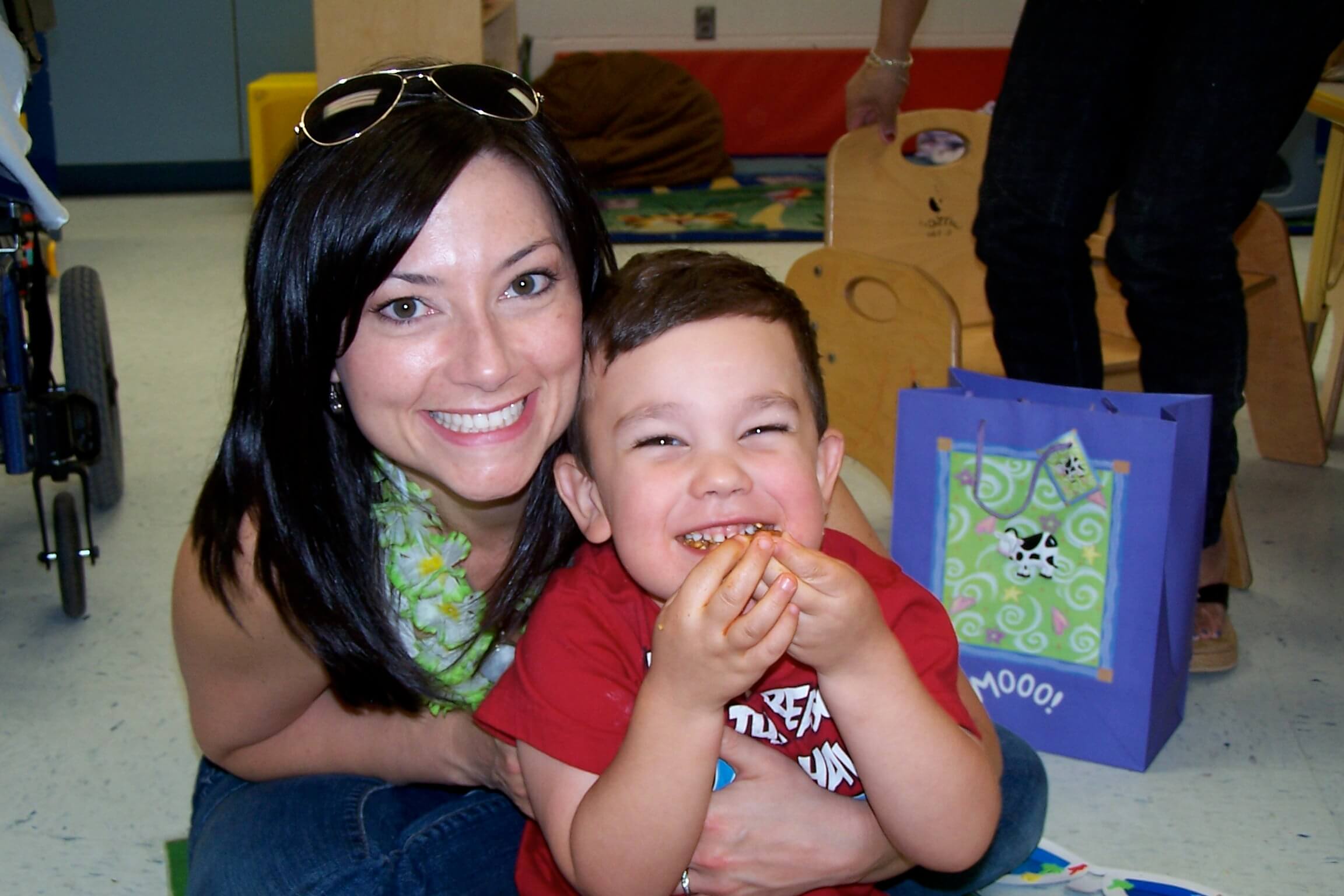In this webinar, Rebecca Shaffer walks us through what your child tells you, strategies to prevent the behavior, reinforce good behaviors, and build new skills.
Tracy Stackhouse discusses the importance of self-regulation in individuals with Fragile X syndrome, including tools, safety, and connection.
Anne Hoffmann and Kristen Vincent present tools that caregivers can use to encourage communication development for children during their early stages of development.
The webinar was a facilitated one-hour Q&A session covering a wide-range of topics. The panelists shared recommendations and information during the discussion, each from their own professional perspectives.
Ilana Garber, a Fragile X carrier and mother of a child with Fragile X syndrome, shares her experience with Fragile X and offers her perspective to people interested in testing for themselves or their child.
This presentation highlights how to recognize behavioral challenges in FXS and the most common behavioral difficulties and treatment options.
Experts in the field discuss support and solutions for females with Fragile X in this panel discussion and Q&A.
Calling all fathers, papas, daddies, pop, and dads—Will Bridges discusses raising a child or children with Fragile X syndrome. Not sure how to explain Fragile X syndrome to a colleague? We’ve got you covered. Do you find yourself frustrated at home? We all do, and we have some ideas that may help.
This presentation focuses on signs of emotion dysregulation in Fragile X syndrome and ways to respond including practical strategies and an Emotion Regulation Toolkit to download.
This presentation focuses on tools that caregivers can use to encourage communication development for individuals at early stages of development.
Parents and other caregivers must consider many factors when caring for adults with Fragile X syndrome, and the process of planning and obtaining adequate care can be quite complicated.
Dr. Rebecca Shaffer joins us to give advice and tips on developing play skills with your children with Fragile X syndrome.
Rebecca Schaffer, PsyD, walks parents and caregivers through how to keep a routine around the home, especially during COVID-19. But, it is timeless advice.
As part of the NFXF’s ever-increasing focus on services for adults, we are pleased to bring you this 30-minute slide and audio presentation by Dr. Marcia Braden.
Behavioral outbursts and aggression are critical incidents in the home or the community. For biological mothers of children with FXS who carry the premutation gene, there is the added predisposition to anxiety, as well as other emotional concerns, which can amplify their response to these critical incidents.
Family caregivers play a critical role in managing the needs of individuals with FXTAS throughout the illness. People with FXTAS rely on caregivers for a wide range of support — preparation of meals, household chores, transportation, medications, bathing, dressing, feeding, physical, emotional and social care, and managing family money.


